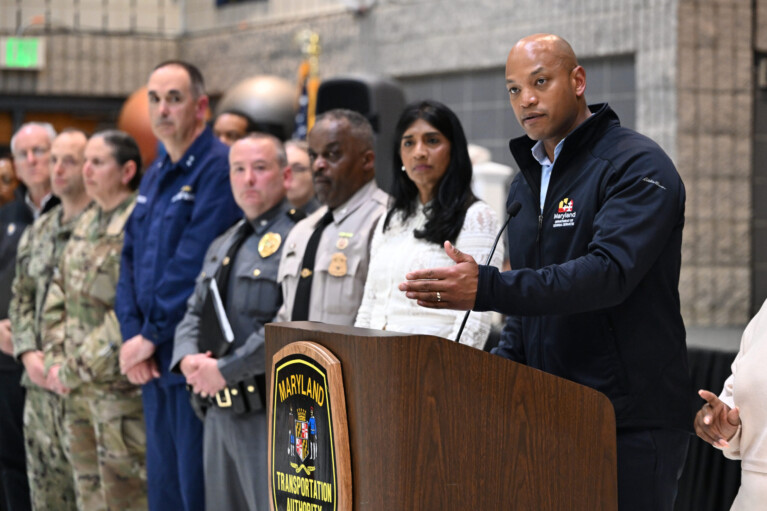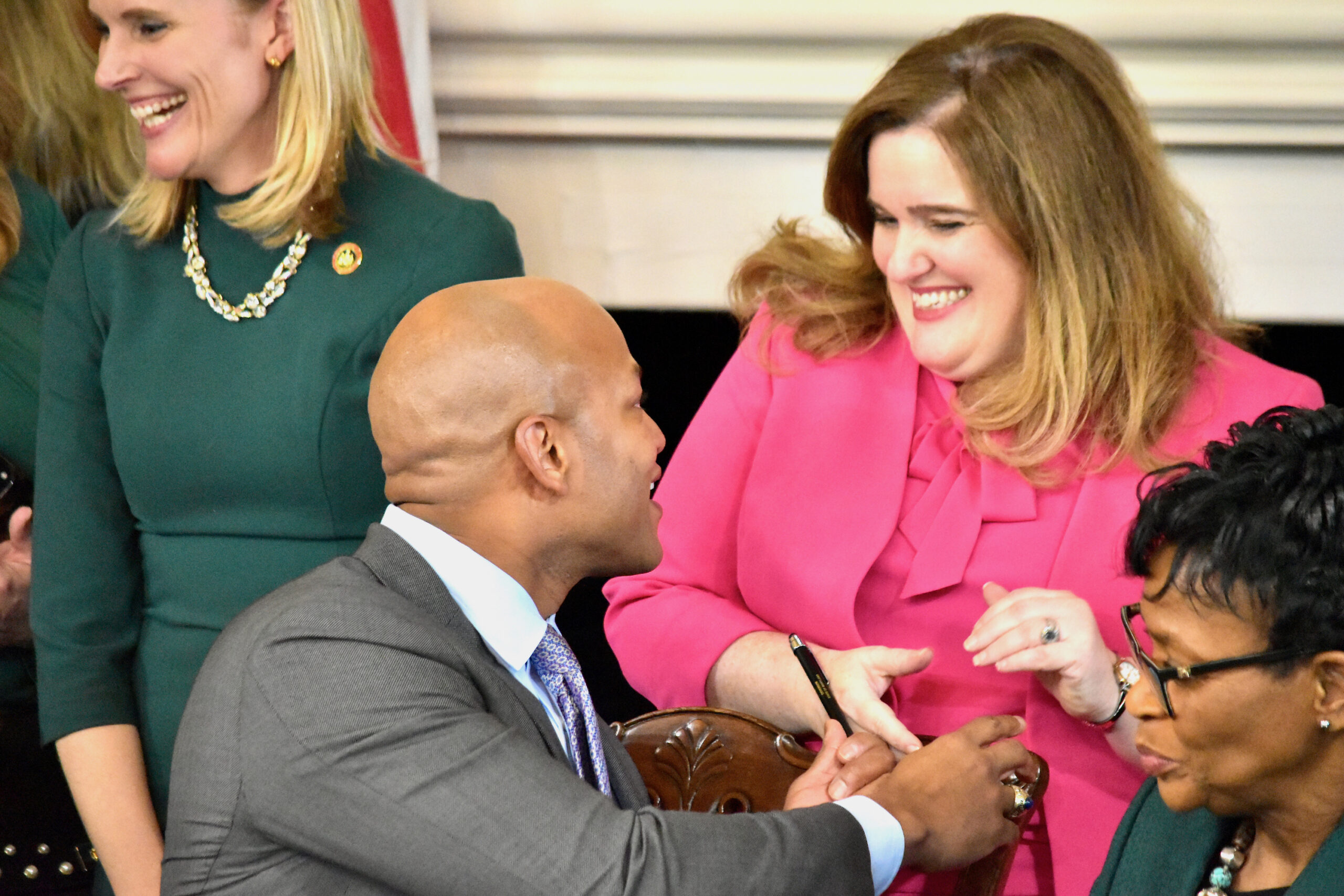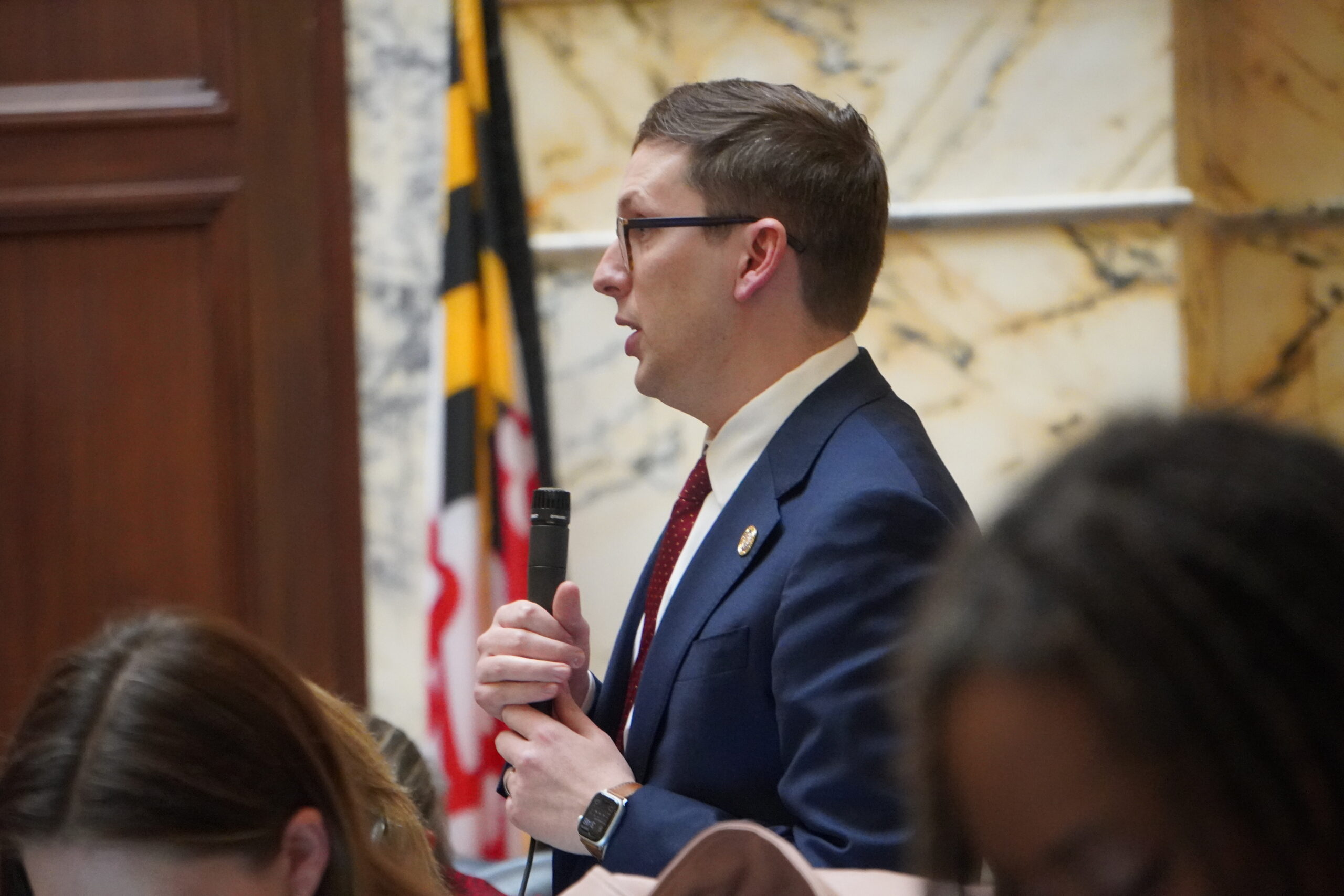U.S. Navy Strongly Opposed To Capital Beltway Widening Project

In a tersely-worded letter to the Maryland Department of Transportation, the U.S. Navy served notice that the state should not plan on gaining control of “any” military property in Bethesda for the widening of the Capital Beltway (I-495).
The letter also took the agency to task for not considering transit alternatives and the impacts of the pandemic on commuting patterns.
The Nov. 4 correspondence is among thousands of comments provided to MDOT during a just-completed public feedback period on the Hogan administration’s plan to add four “express toll lanes” to Interstates 495 and 270.
During testimony before a legislative panel on Friday, Transportation Secretary Greg Slater called the Navy’s objections “pretty significant and serious.” An influential local official agreed.
The two-page letter was signed by Capt. Mary S. Seymour, the Commanding Officer at Naval Support Activity Bethesda, a base whose main tenant is the Walter Reed National Military Medical Center. A sprawling property across from the National Institutes of Health, NSA Bethesda fronts on MD 355 and borders the Beltway.
The Navy raises several objections to the state’s proposal to add four lanes to the two highways.
The letter chides MDOT for continuing to assert that it will take NSA Bethesda property for the project.
“As previously stated in multiple letters from the installation to MDOT, the Navy will not cede any property for the construction of this toll road,” Seymour writes. “Doing so would compromise Antiterrorism/Force Protection guidelines and impact the NSA Bethesda Mission. The Navy requests the project remove the property acquisition from consideration in the… analysis.”
The letter notes an “ongoing disagreement” between the state and Department of Defense over “right-of-way and fence line impacts” and finds MDOT’s “analysis of the construction footprint to be woefully inadequate.”
“The information in the [Draft Environmental Impact Statement] shows disruption to mission critical infrastructure on the northeast corner of the installation without providing any technical information on the potential size and duration of those impacts,” Seymour wrote.
“Impacts to those facilities and infrastructure will cause an immediate degradation of installation support services to Walter Reed Military Medical Center and mission critical construction. This is a direct contradiction to the DEIS assumption that “impacts to any individual facility would not alter access to or use of the hospital facilities.”
Echoing complaints from state legislators, local officials and members of the public, the Navy faults the state for failing to consider the potential benefits of increased transit. “This document is supposed to analyze a multi-modal transportation system, yet focuses exclusively on toll roads.”
In addition, the letter urged greater analysis of the impact of COVID-19 on both road and transit use. “These impacts are changing commuter behavior and should be reflected in this document,” Seymour told MDOT.
In an appearance before a House Transportation and Environment subcommittee on Friday, Slater, the state’s transportation chief, told lawmakers he had read the Navy’s letter.
“I think certainly some of the concerns that they’ve raised are pretty significant and serious,” he said. “And we want to work through that with them and really talk through all of those [concerns] with them.”
The consensus-oriented secretary, who is popular with officials from both parties, said he took issue with the tone of the Navy’s letter, which he described as “kind of a not-super-productive dialogue.”
He said he has urged his project team to reach out to NSA Bethesda officials in the near future.
While the substance of the Navy’s objections mirrored those that have been raised for many months by environmentalists, Democratic officials and homeowners near the two highways, several officials said it was striking for DOD to be raising the same issues.
“There now seems to be a pretty unified wall of opposition to this project,” said Montgomery County Planning Board Chairman Casey Anderson, whose agency has clashed with MDOT staff during project discussions.
“I didn’t really feel there was going to be a solid, almost-unanimous opposition among all the relevant entities that own property or have some legal role in approving this,” he added. “I feel a little better about this than I did six months ago.”
Del. Marc Korman (D-Montgomery), the chair of the T&E subcommittee on capital spending, called the Navy’s objections “significant.”
“The meat of the letter is them saying — and I’m paraphrasing — you’re not taking any of our land, for national security reasons, and stop pretending you are,” he said in an interview.
Ben Ross, head of the Maryland Transit Opportunities Coalition and a vocal critic of the project, called the Navy’s objections “a big obstacle” for the state.
“The Navy repeatedly raised this issue with MDOT during DEIS preparation, and MDOT did not modify its plan to use Navy property,” he said in an email. “I can’t see U.S. DOT approving… something that requires land from the Navy that the Navy says it needs for ‘mission-critical’ reasons.”
Efforts to get reaction from supporters of the project on Friday were not successful.




 Creative Commons Attribution
Creative Commons Attribution